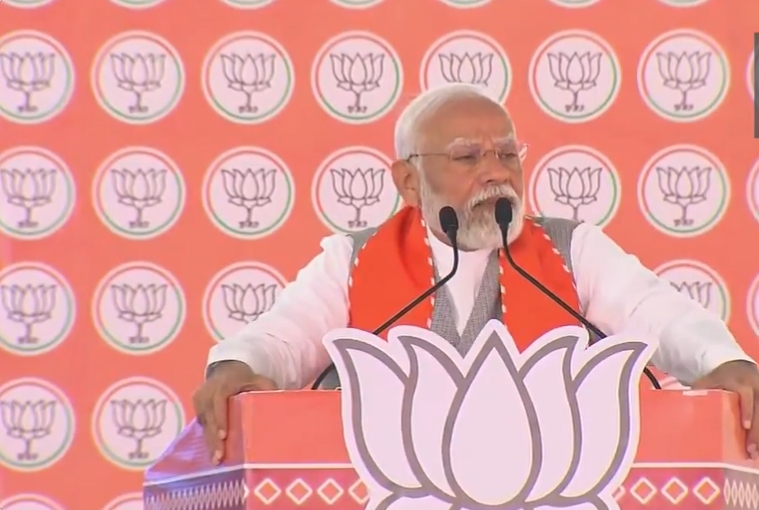Prime Minister Narendra Modi’s address at a public rally in Surendranagar, Gujarat, has set off a political firestorm with his sharp critique of the Congress party, accusing it of being a “wrong-delivery party” and unleashing a volley of allegations against its historical and contemporary actions.
In a fervent speech, PM Modi pulled no punches as he castigated the Congress for what he portrayed as a legacy of failure and mismanagement. Drawing parallels between past events like India’s partition and alleged instances of corruption during Congress rule, Modi sought to portray the party as unfit for governance.
Modi’s comments resonated with his supporters, who echoed his sentiments and rallied behind his portrayal of the Congress as a party mired in incompetence and malpractice. However, it was his remarks concerning reservation policies that stirred the most controversy. By insinuating that the Congress aimed to divert reservation benefits from marginalized communities to Muslims, Modi waded into contentious territory, sparking debates about identity politics and social justice.
The rally in Surendranagar served as a platform for the BJP to reinforce its narrative of development and progress while undermining the credibility of its political opponents. With elections looming, the BJP’s strategy appears to center on highlighting its achievements while highlighting the perceived shortcomings of the Congress.
As Gujarat braces for the electoral showdown, the Congress is yet to issue a formal response to PM Modi’s allegations, leaving room for speculation about its counter-strategy. The state finds itself at the center of intense political discourse, with citizens closely monitoring developments and engaging in heated debates.
PM Modi’s verbal assault on the Congress has injected a fresh dose of intensity into Gujarat’s political landscape, setting the stage for a fiercely contested electoral battle. As the campaign trail heats up, voters must carefully evaluate the competing narratives and make an informed choice when they cast their ballots. With the stakes higher than ever, Gujarat’s political future hangs in the balance, poised to shape the broader contours of Indian politics in the days to come.



